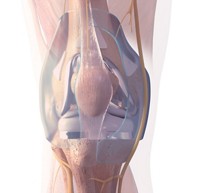Advertisement
Grab your lab coat. Let's get started
Welcome!
Welcome!
Create an account below to get 6 C&EN articles per month, receive newsletters and more - all free.
It seems this is your first time logging in online. Please enter the following information to continue.
As an ACS member you automatically get access to this site. All we need is few more details to create your reading experience.
Not you? Sign in with a different account.
Not you? Sign in with a different account.
ERROR 1
ERROR 1
ERROR 2
ERROR 2
ERROR 2
ERROR 2
ERROR 2
Password and Confirm password must match.
If you have an ACS member number, please enter it here so we can link this account to your membership. (optional)
ERROR 2
ACS values your privacy. By submitting your information, you are gaining access to C&EN and subscribing to our weekly newsletter. We use the information you provide to make your reading experience better, and we will never sell your data to third party members.
Drug Delivery
Philip Morris pushes into drug delivery
The buys are part of the tobacco company’s expansion beyond nicotine
by Megha Satyanarayana
July 14, 2021
| A version of this story appeared in
Volume 99, Issue 26

Philip Morris International (PMI), the maker of the iconic Marlboro cigarette outside the US, is bolstering its foray into drug delivery with two high-profile deals.
The tobacco company has agreed to buy Fertin Pharma and its oral drug delivery technologies for about $820 million. It is also buying Vectura Group and its inhaled drug delivery technologies for about $1.2 billion.
The purchases are part of PMI’s effort to diversify as cigarette use continues to decline worldwide. PMI says drug delivery technologies from Fertin and Vectura complement its own expertise in inhalation and aerosolization. Overall, PMI has a goal of generating at least $1 billion in sales by 2025 from what it calls “beyond nicotine” products.
Although some people might find a tobacco company’s foray into drug delivery for health purposes disingenuous, PMI’s acquisitions are not surprising, says Anthony Hickey, an inhaled drug delivery expert at RTI International, a nonprofit research institute. Both companies being purchased are large, bringing several products with them, not to mention dozens of scientific experts.
“Clearly, a tobacco company knows an awful lot about lungs and the behavior of aerosols in lungs. At some level, I would think this is an admirable use of resources that they have available to them,” Hickey says.
One of Fertin’s flagship products is Zapliq, a tablet that turns into liquid when chewed and can be customized to different small molecules, including cannabinoids and pain treatments. The company also makes gums and powders that can be used in orally dissolvable pouches.
Vectura has dozens of inhaled and noninhaled health care products on the market through partnerships with other drug companies. In acquiring Vectura, PMI bested a competing bid by the Carlyle Group, a private equity firm.
Developing drugs for inhalation come with challenges, Hickey says. Chemical modifications may need to be made to a therapeutic to make it more available in the lungs. And the regulatory timeline can be long because both the device and the drug, especially if it has been developed from scratch, have to be approved.
And while PMI has not indicated any disease it is working on, Hickey says several lung-specific diseases could use the attention, such as cystic fibrosis; chronic obstructive pulmonary disease (COPD); infectious diseases that do their worst damage in the lungs, like tuberculosis; and of course, COVID-19.
“There is opportunity there,” he says, noting the irony that a cigarette company might develop a treatment for COPD, one of the main diseases that arises from smoking.




Join the conversation
Contact the reporter
Submit a Letter to the Editor for publication
Engage with us on Twitter